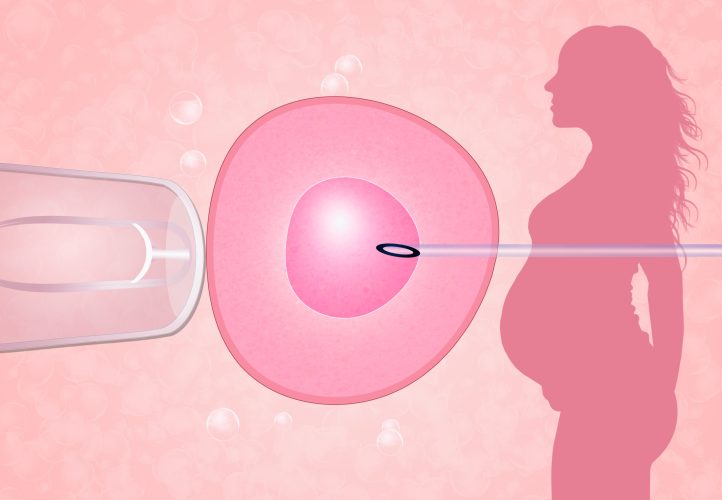- NON-INVASIVE PRENATAL TESTING (NIPT)
- PREIMPLANTATION GENETIC SCREENING (PGS)
- CANCER MOLECULAR DIAGNOSIS

NIGM is a form of Non-Invasive Prenatal Testing (NIPT) based on next-generation sequencing using cell-free DNA (cfDNA) in maternal blood to evaluate possible chromosomal conditions in pregnancy. It can be performed as early as 9 gestational weeks using a single tube of blood.
NIGM offers the prenatal test with a focused and clinically relevant menu that screens for chromosomal aneuploidies, specific sex chromosome aneuploidies, and pathogenic microdeletions/duplications.
 Simple
Simple  Accurate
Accurate Proven >99% sensitivity based on a test of more than 70,000 pregnancies
 Fast & Convenient
Fast & Convenient - Quick test from sample preparation to report generation within 24 hours
- Simplified operation: Automated and localized data analysis and report
 Flexible
Flexible - Compatible with most standard NGS library prep kits and bioinformatics tools
- Offering flexible options for both manual and automated workflows

Preimplanation Genetic Testing for Aneuploidy (PGT-A), which is applied to identify chromosomal abnormalities and that represents the broadest indication to preimplantation genetics at present. Preimplantation genetic testing for aneuploidy identififies chromosomal abnormalities in embryo samples for the research of in vitro fertilization (IVF) or intracytoplasmic sperm injection (ICSI). These genetic insights may increase the probability of success for future pregnancies and healthier future generations.
 Easy-to-use
Easy-to-use Automated and simplified sequencing and data analysis workflow
 Fast
Fast Quick test from sample preparation to final report within 24 hours
 Flexible
Flexible Compatible with common used NGS library preparation kits and bioinformatics tools
 Sensitive
Sensitive Accurately detect different types of chromosomal mutations even in a low copies

Clinical diagnostic whole‐exome sequencing (WES) is a powerful tool for patients with undiagnosed genetic disorders. WES employs high-throughput sequencing of more than 20,000 genes per individual, enriched through sequence capture technology. WES targets all protein-coding regions (~1% of the whole genome) responsible for 85% of known disease-causing variants. It allows for molecular diagnosis of genetic diseases and enables the exploration of novel mutations and new pathogenic mechanisms. Compared to whole genome sequencing, WES has the advantage of a greater sequencing depth and delivers more effective data.For patients with symptoms of genetic disorders, clinical exome sequencing plays an important role in quickly identifying potential variants. Clinical exome sequencing offers a one-step solution for challenging issues, such as diagnosing patients with genetic heterogeneity or atypical presentation, where it is unclear which genes are causing the specific genetic condition.
 Easy-to-use
Easy-to-use Automated and simplified sequencing and data analysis workflow
 Fast
Fast Quick test from sample preparation to final report within 2 weeks
- Total Solution: Fully-automated sequencing data imported and report system.
- Accurate and reliable detection results: NO PCR amplification, avoids sequencing bias due to GC preferences, reduces bioinformation analysis complexity, and improves detection sensitivity and specificity.
- High resolution: Single-molecule-level resolution, Low-coverage sequencing can be used to not only detect chromosome aneuploidy and structural variation of large fragments, but also detect microdeletion and microduplication of chromosome fragments as low as 0.1M. It can be used to accurately detect a low proportion of embryos of less than 20%. So, the accuracy of detection and the safety of transplantation can be improved.
- Flexible throughput: Channels can be flexibly selected according to the sample number.


Tumor molecular diagnosis based on DNA sequencing can perform genotyping, tumor cell mutation analysis, drug-related targets prediction, and individual genetic differences on patients. It can obtain the most accurate diagnosis results to make personalized treatment plans and choose appropriate therapeutic drugs, so the survival time of patients can be prolonged and quality of life will be improved. In addition, for Individuals with a family history of cancer, genetic testing of cancer can help them assess the risk of cancer, and early detection and prevention.
Compared with the traditional embryo morphology that relies on picking embryos with a microscope, preimplantation genetic screening (PGT) based on DNA sequencing can directly detect the genetic material of embryos. Cell separation and sequencing in the blastomere developed to the 3rd day of the fertilized egg or the blastocyst stage trophoblast developed to the 5th day, and the abnormal structure and number of 23 pairs of chromosomes were analyzed at one time. It provides reliable genetic information reference for choosing healthy embryo transfer, increases the effective pregnancy rate of IVF, and reduces the abortion rate.

